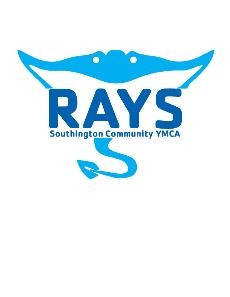SOUTHINGTON-CHESHIRE COMMUNITY YMCAs
COMPETITIVE SPORTS POLICY
1. YMCA Philosophy
The primary purpose of the YMCA is to promote the spiritual, mental, and
physical well-being of all persons. Sports in the YMCA has never been an end in
itself, but rather a vehicle for achieving a much more global purpose; character
development.
Character development focusing on the four values of caring, honesty, respect,
and responsibility, is an integral part of the national YMCA program. Caring
means to love others and be sensitive to the well being of others involved in the
sports program. Honesty is to have integrity, making sure that one's actions
match one's values through participation in sports. Respect means to value the
worth of every person, including oneself, one's teammates, opponents, and
officials. Responsibility is to be accountable for one's behavior and obligations.
All of these fair-play values contribute to an attitude toward sports which keeps
winning in perspective. In addition, YMCA sports emphasize broad participation,
rather than specialization. Central themes in the YMCA sports philosophy are:
teaching fundamental skills, encouraging lifetime involvement in physical activity,
and strengthening the values of fitness, health, self-respect, and respect for
others.
2. Goals of YMCA Sports
More important than winning are the lessons to be learned from competitive sports:
Respect for oneself
Respect for others
Self-discipline
Responsibility as a team member
Development of leadership
Self-confidence
Concern for physical fitness
Lifetime involvement in sports and wellness
3.
Competitive Sports Programs
a. The purpose of the Southington-Cheshire Community YMCAs sports
programs is to use competition as a tool for learning the lifelong values of
goal-setting and hard work for reward. The participant should learn to accept
winning with humility, defeat with dignity, and strive to try harder.
b. Southington-Cheshire Community YMCAs competitive sports programs are
an outgrowth national of the YMCA progressive skills programs.
c. Southington-Cheshire Community YMCA's competitive sports programs
provide youth with a basic foundation in the skills and psychology of
competition.
d. When the competitive sports program no longer meets the desired needs of
an individual, that individual may wish to seek an alternative program
available through a private club, high school, or other instruction.
e. The three main thrusts of the Southington-Cheshire Community YMCA's
competitive sports programs are:
1. To emphasize personal character development
2. To aid in physical and skills development
3. To promote teamwork and good sportsmanship
f. Southington-Cheshire Community YMCAs competitive sports teams are an
integral but small part of a complex membership association. As such, team
members, parents/guardians, officials, and administrators must abide by all
policies set forth by the Southington-Cheshire Community YMCAs for the
greater good of the total association membership.
4. Program Objectives
a. The YMCA seeks to help individuals.
1. Develop self-confidence, self-respect, and an appreciation of their own
worth as individuals.
2. Grow as responsible members of their families and citizens of the
community.
3. Recognize the worth of all persons and work for interracial and intergroup
understanding.
4. Develop capacities for leadership and use them responsibly.
5. Competitive Team Program Policies
a. Length of season
The Fall Short Course competitive season and Summer Long Course
season should be scheduled in accordance with the guidelines of the
sport.
1. Meets, practices, team meetings, fund-raisers, and similar activities should
occur throughout the competitive season.
2. General planning sessions, sports conditioning, stroke clinics and other
training should not interfere with regularly scheduled YMCA programming.
3. Competitive meets and other activities should not interfere with regularly
scheduled YMCA programming.
4. Two teams in different sports should try not to schedule home meets on
the same day in the same facility.
b. Entry level requirements
1. Swim team
a. Team members must be at least five years old and in school to
compete in meets.
b. Participants are encouraged to continue in the progressive program
and/or other alternative Y programs for stroke development.
c. League participation
1. Participants who choose to compete on a Southington-Cheshire
Community YMCAs competitive team must make a total season-long
commitment to that team. Swimmers are expected to practice and
compete in meets.
2. No participant may become involved on another YMCA team in the same
sport. Doing so will cause immediate forfeiture of YMCA team participant
status.
d. Team commitment
1. Once a team participant has committed to a Southington-Cheshire
Community YMCAs branch competitive team roster and has paid the team
fee, (including a full membership) that participant will be a member of that
branch team for the duration of the season.
2. No YMCA branch team member may switch to another YMCA branch
team in mid-season.
e. Sports Federations and National Governing Bodies
1. When Southington-Cheshire Community YMCAs competitive teams
affiliate with outside sports federations or NGBs (i.e.: USA Swimming,
etc.), the teams will be identified with and remain under the complete
control of the YMCA.
2. If the team must obtain a charter from a National Governing Body for a
specific sport in order to participate in open competition in that sport the
name on the charter will include the name of the branch YMCA that team
participant is a member.
3. When Southington-Cheshire Community YMCAs competitive teams
participate in open competition sponsored by the National Governing
Bodies, they will be governed by the rules and regulations set forth by
those NGBs except where those rules and regulations are in conflict with
the YMCA safety and insurance standards.
4. When there is a conflict in scheduling between YMCA meets and NGB
competition, the YMCA meets will take precedent.
f. Safe Sport Act
This Act was signed into Law in 2018 and has expanded the requirements
around sexual abuse reporting and prevention policies. Requirements
include:
1. All applicable adults authorized by the organization to interact with
athletes, including volunteers, are deemed mandated reporters. Any
incident or suspected incident of child abuse must be reported as soon as
possible (less than 24 hours) to the appropriate authorities, and in the
case of sanctioned teams must also be reported to US Cebter for Safe
Sport.
2. Organizations must offer and provide consistent training with
adult/parental.guardian consent. Training must also be available to minor
members. Training must be completed annually by adult athletes and
non-athlete members.
3. The Child Abuse Prevention Policy must be followed by all staff. All adults
who interact with and have frequent direct contact with minor athletes,
including adult athletes, must follow the Minor Athlete Abuse Prevention
Policy (MAAPP). This document is on-line with the NGB and all
participants, staff, and volunteers are required to complete the NGB or
may not participate.
4. All sanctioned teams must complete the Safe Sport recognized status with
USA Swimming by the end of 2021. This recognition must be renewed
every 2 years.
6. Professional Staff Responsibilities in Working with Competitive Teams
a. Guidance and communication
1. A communication link between the YMCA staff person, the coaches and
Parents' Association/Booster Club is imperative.
b. Budget
1. The Y's departmental director should review the team's parent
association/booster club budget with the treasurer and president before
the start of the season. The budget may be presented to the parents'
group for their recommendations. Approval of the final budget shall be the
responsibility of the Y staff person and the YMCA Finance Committee.
2. Changes or revisions of budget throughout the year should be reviewed
by Y staff person and officers of parent association.
3. The Y staff person shall keep in contact, (on a monthly basis) with the
treasurer and president throughout the season to ensure proper
expenditure of funds.
4. YMCA Teams should follow guidelines and recommendations of the Y's
Finance Committee in regards to the annual financial summary of the
club's account, check signing, monthly reporting, and fundraising.
c. Collect participation fees
1. The YMCA staff person shall establish a fee schedule. Participation fees
shall be deposited in the YMCA's Operating Fund.
2. Escrow accounts for meet fees must be paid in a timely manner and is
under the control of the YMCA.
d. Membership requirements
1. The YMCA staff person shall see that all team participants are annual full
privilege YMCA members. After practices begin at the start of the season,
the Y staff person shall review membership status throughout the season.
e. Hiring of coaching staff
1. The YMCA staff person is responsible for hiring and firing of all coaching
staff members. Parents' group may recommend qualified candidates to
the Y director.
f. Liaison with Professional Directors' Organizations
1. The YMCA staff person shall communicate to the coaches and parents
information regarding the team, which is discussed at Cluster, State, or
Regional YMCA National, or USA Swimming national swimming levels.
g. Liaison with parents group on fund-raising
1. The YMCA staff person shall work closely with the parents' group to help
coordinate fundraising events. Fund-raising events must be cleared
through the YMCA CEO and/or Development Director.
h. Implement a character development component by:
1. Pledge of Allegiance or National Anthem before meets/matches.
2. Be sure all involved with a competitive team are familiar with the YMCA
philosophy on competitive sports.
3. As a staff person, show a genuine interest and concern for the total
competitive program.
7. Competitive Coach's Responsibilities
a. To classify athletes and assign them to competitive events.
b. To attend in a coaching capacity, all YMCA practice sessions and meets.
c. To teach and support the philosophy of the YMCA.
d. To set an example of good behavior and sportsmanship for all athletes at all
times.
e. To give athletes an opportunity to develop skills and to promote their
involvement as part of a team rather than as individual participants. (it is
noted that individual development has a positive impact on the team.)
f. To monitor the following:
1. Attendance (tardiness and absenteeism) at practices and meets.
2. Conduct at practices, meets and during travel to and from meets.
(When they are present.)
g. To instruct, supervise, and conduct all workouts for the team so athletes
might reach their potential in accordance with the principles and philosophy of
YMCA competition.
h. To report to the YMCA director any conflicts in performing coaching duties as
outlined above.
i. The coaches abide by and enforce all rules set up by the Southington-
Cheshire Community YMCAs.
j. All concerns regarding discipline, scheduling, organization, participant
qualification, and related matters shall be brought to the attention of the
YMCA staff person.
8. Duties and Responsibilities of Parents' Groups
In order to have successful youth competitive teams, parents, as well as children,
should participate in the program. A strong working parents group is the backbone of
any competitive team. Any parent/guardian whose child is a participant on a
Southington-Cheshire Community YMCAs competitive team automatically is considered
a member of that team's parent group.
a. Parents/guardians should cooperate with the YMCA staff person and coaches
in making the competitive program meaningful for the team member.
b. Parents/guardians should attend and participate in team parents' group
meetings.
c. Parents/guardians should assist with scoring, officiating, selling concessions,
volunteer coaching, and fund-raising.
d. Staff transporting athletes to meets must abide by the Transportation Policy,
as well as supervise and monitor team members, reminding them that they
are representatives of the Southington-Cheshire Community YMCAs and
guests at another institution.
e. Parents/guardians should always display good sportsmanship and be
supportive of the YMCA's competitive sports program and its philosophy.
f. Parents/guardians serve as a support system for YMCA staff including
developing and amending by-laws and association budget.
g. YMCA teams should follow guidelines and recommendations of the Y's
Finance Committee in regards to the annual financial summary of the club's
account, check signing, monthly reporting, and fundraising.
Adopted 6/24/98
Revised 2/99, 1/21/21
Board Approved 3/24/21



